Learn how to create a relapse prevention plan that’s personalized to highlight the best tools, techniques, and coping skills to prevent relapse. Relapse prevention planning can be a long process, but in the end, you’ll be reducing your odds of experiencing a relapse in the future.
For every story of people reaching long-term recovery from a substance use disorder, there is another about relapse. However, it’s important to know that every person in recovery will encounter the possible threat of a relapse. While these relapses can set people back to square one and create a great deal of guilt and regret, they shouldn’t be viewed as moral failures.
While they are a common roadblock on the road to recovery, relapses will require more therapy and intervention and are an intimidating reality of substance use disorder recovery. Fortunately, these relapses are also possible to prevent with effective relapse prevention planning and the help needed to see that plan through.
A relapse prevention plan is a written plan developed for not only preventing the relapse itself but also for avoiding potential triggers and recognizing the potential warning signs that a relapse is occurring. A good relapse prevention plan will cover everything you need to know to prepare for relapse, avoid relapse, and stay in recovery.
How to Create a Relapse Prevention Plan for Success
The key to creating a good relapse prevention plan is to understand your substance use disorder on a deep enough level, so you know your triggers, how to avoid them, and which relapse prevention plan strategies are more helpful than others. While these plans can be made without help, it’s best to seek the advice of a trusted professional like a substance abuse counselor. In fact, getting a professional’s help is so important for preventing relapse that it’s the first step we recommend you take when you’re creating your plan.
Talk To A Professional
Talking to a professional allows you to speak about your concerns with someone trained to help you address addiction problems. A professional can also help you figure out the rest of your relapse prevention plan. They can help you identify triggers and risky situations and can suggest coping strategies to deal with them. A professional can even help you develop an understanding of what led you to use substances in the first place.
The other primary benefit of working with a professional is that you can turn to them if you suspect a relapse is imminent. A professional can help you assess your stressors and triggers, respond in a healthy way, and get back on the path to recovery before things get worse.
Write Down Your Goals
What motivates you to stay in recovery and keep striving towards a more positive future? Having a goal to work toward each day can help you wake up motivated and feel positive about your recovery journey. Without such goals in mind, it’s easy to feel as though you’re not making any progress. Common recovery goals include improving relationships with your loved ones, resuming your obligations to family and friends, and even making amends to people you may have wronged.
Keep in mind—your goals don’t all need to focus on your recovery. They can be as simple as exercising for thirty minutes a day or taking time to read a book every night before bed. Alternatively, these can be more significant lifestyle changes like working toward a new career or beginning a personal fitness journey. It’s important to recognize that these goals can only be achieved by remaining sober, meaning that your sobriety is critical to helping you reach your goals. These goals help ensure you are traveling a healthier life path and help you build healthy, lasting habits.
Identify Triggers and Recognize Cravings
Avoiding a relapse doesn’t begin and end with avoiding substances. Many people with substance use disorders experience problems that cause them to attempt unhealthy coping mechanisms like substance use. Understanding the triggers that can bring these feelings and traumas back is essential to prevent a relapse. By preventing relapse, you are also preventing further emotional and psychological trauma. Depending on what the triggers are, this step can involve strategies to avoid triggers, deal with the cravings they produce, and gain control over the situation.
For example, if the trigger is a specific place, you might develop a strategy to avoid that place in the future. Alternatively, if the trigger cannot be avoided and is something like stress, family members, or work, you’ll need to develop a way to manage the stress until you can give yourself a break from engaging with them.
Identify your personal triggers and the things that cause your cravings to ensue, and record them so you can look out for them in the future
Develop Coping Strategies
Of course, it’s impossible to avoid all the triggers, cravings, and stressors in your life. Thus, being able to cope with stress is a necessity. Effective coping strategies allow you to handle the emotions that triggers cause in a constructive and healthy way instead of giving in to negative coping strategies like substance use.
There’s a variety of coping strategies to consider, depending on your unique needs. Mindfulness can help you focus on the moment and address the feelings the trigger is causing. Then, consider relaxation exercises, stress management techniques, and other methods you can use to overcome those feelings. Strategies like deep breathing, meditation, attending therapy or 12-step meetings, or even engaging in other activities like cooking, writing, creating art, and playing video games can help you refocus your energy on something positive.
Identify several coping strategies to try and record them on your relapse prevention plan.
Make Healthy Alternatives Available
When setbacks occur, and relapse seems imminent, it can still be prevented if you are aware of your limits and choose healthier alternatives. If you are able to determine whether your substance of choice exists as a reward, a relaxation method, a coping mechanism, or even as an escape from reality, you can identify alternative options to stand in its place. Effective alternatives can offer the same benefits of substance use without the same risks and downsides.
For example, if you use alcohol to relax and escape stressful situations, a healthy alternative could be practicing meditation, exercising, or even just watching a comforting TV show. If you use alcohol to cope with physical pain or mental anguish, therapy sessions or acceptable medications could be viable alternatives. Alternatives should be readily available, simple to do, and may offer long-term wellness benefits.
Record several potential alternatives to substance use on your relapse prevention plan.
Stay Connected To Your Treatment Plan
Preventing relapse is only one step in your substance use disorder treatment plan—and only one component of your life while in recovery. In other words, entering recovery and avoiding relapse initially doesn’t mean your SUD is over. In fact, it’s important to keep it in mind when creating a relapse prevention plan.
Understanding the events and behaviors that led you to treatment, the changes you made to begin recovery, and reviewing things you still need to resolve can help you identify where you are in your recovery journey. Additionally, mapping out your path through treatment and into recovery can help you get back on your feet again if you do, indeed, suffer a relapse.
Monitor Your Progress
It’s easy to lose track of how you’re doing after you’ve been working on something for a while. It’s also easy to lose motivation if you aren’t convinced your efforts are working. Noticing a gradual change is a bit like waiting for the rain to fill a bucket—if you focus on the individual drops, you may not notice how much progress is occurring. This is why monitoring your progress is such an important part of preventing a relapse; it not only helps you see how far you’ve come, but it can keep you motivated to keep going.
Record times you encountered a trigger, stressful situation, or another event that you once would have addressed by using your substance of choice, and note what you did in response to that trigger. You can refer to these notes in the future to monitor your progress and repeat strategies that work.
Create a Support Network
When you struggle alone, your struggles are greater. While working with a professional is an important part of preventing relapse, it’s also critical to build a support network of trusted loved ones you can count on for support. The need for a support network is so great that it’s one reason group therapy and groups like Alcoholics Anonymous are so effective. This support network should be made up of people you know you can rely on. Ideally, some of these people should understand the risks of a relapse, the tell-tale signs that you’re triggered or having a craving, as well as how to help or listen when things aren’t going well.
It’s a good idea to make a proper list of the people who make up your support network, including professionals like therapists and counselors, family, friends, contacts from treatment or AA, or even a religious leader you trust. Having contact information readily available can be the difference between struggling alone or having someone who can help you when you need it.
Take Care of Yourself
Self-care is more than just a buzzword—and contrary to popular belief, practicing self-care is not selfish. Caring for yourself is an essential part of being a healthy human being, both physically and mentally. If you don’t practice proper self-care, you’re more likely to continue experiencing the problems that contributed to your substance use disorder in the first place.
Learning to love and respect yourself is an important component of mental self-care that can help you avoid treating yourself badly when you make mistakes. This type of self-care can enable you to keep track of your own needs and wants. Self-care can also be encouraging. For instance, if you tend to suffer from anxiety, practicing regular self-care will not only diminish the symptoms of your anxiety but also remind you that you’re capable of handling issues in a healthy way.
Mental self-care is also about learning from mistakes rather than fixating on past wrongs. Continuing to berate yourself about making a mistake isn’t healthy, but understanding why you made a mistake and identifying how to fix it can help you do things better next time. Mental self-care also allows you to grow and accept minor imperfections while addressing those that hurt you and others.
Of course, self-care involves more than just mental health–it also encompasses how you care for your physical health. Exercising, eating right, sleeping well, staying hydrated, and taking care of your hygiene are all important steps to feeling your best. Relaxation, too, is an important component of your physical health, so be sure to frequently engage in the hobbies, recreational activities, and other things you enjoy that you listed above.
Record self-care routines that are important to you in your relapse prevention plan so you can refer to them and keep yourself accountable.
Build Healthy Habits
Many of these strategies can turn into healthy habits if they’re practiced consistently. Since habits, by definition, are patterns of behavior that are difficult to break, strive to fill your life with healthy habits instead of unhealthy habits. You’ll no longer need to stress about adding time to your schedule to practice a coping mechanism or to care for yourself—they’ll simply become a part of your daily routine. Over time, you’ll develop a healthy and happy lifestyle full of good choices and self-love.
Of course, you’ll also need to break your unhealthy habits. If there’s any aspect of your life that’s causing you to experience negativity, make a goal to either address or eliminate these habits. Learning to avoid those activities will be challenging at first, but replacing your unhealthy habits with healthier ones will make you safer and happier down the road.
Make an effort to list your healthy habit goals, as well as unhealthy habits you’d like to break.
Stay Educated and Involved
Keeping yourself informed on the subject of substance use disorders is a good way to stay alert and keep adding tools to your recovery toolkit. If you continue to research the topic, you can be better prepared if a relapse looms. Staying involved with the discussion, whether you continue to engage with a therapy group, discuss the topic online, or even just listen to webinars from experienced professionals, can provide you with valuable advice and remind you that you’re not alone.
On your relapse prevention plan, list potential opportunities for education and growth.
Create an Emergency Plan
No matter how much control you believe you have over your recovery, you may one day find yourself in a place where relapse seems inevitable. You need to develop an emergency plan so that if things do go wrong, you can stay calm and do what needs to be done to get help.
Your emergency plan should include coping strategies you’ve already learned, alternative activities to avoid cravings, and the other information you’ve already listed in your relapse prevention plan. You should also create a note reminding yourself to get in touch with someone you trust, whether you just want to vent or are in serious need of help. Listing a professional you trust is also a good idea—if you relapse, you can speak with a counselor quickly, get back on your feet, and continue your recovery.
Create an emergency plan with all the pertinent information you noted above, including contact numbers for your support network, emergency numbers, and even treatment center information. Either you or someone you love can access this information and begin a healthy response immediately.
Practice Acceptance and Forgivenes
While triggers, cravings, and even relapses are a normal part of recovery, many people view them as a failure in recovery. You may also be looking back on your old actions and feeling deep shame. Both can prevent you from truly moving on and being happy.
When things get tough, the most important thing to remember is that you’re not perfect and that mistakes are going to happen. Instead of focusing on your past mistakes or wallowing in self-pity, practice forgiving yourself. Then, be accepting of yourself as an imperfect person. Learning to forgive yourself, learn from your mistakes, and make better decisions moving forward is key to a healthier, happier, more constructive future.
Find an inspirational phrase, or write a note to yourself, reminding you to give yourself grace even when things are difficult.
Reward Yourself
At the end of the day, staying in recovery is a life-long process that requires a great deal of hard work. This effort deserves to be acknowledged, even if it’s only acknowledged by you. Celebrating your milestones and giving yourself a treat for getting through a difficult day will give you something to look forward to. It also reminds you that even if you still have a long way to go, you’ve already made a lot of progress—and that’s something to be proud of.
List ways you can give yourself a break every now and again and do something that makes you happy. You’ve earned it.
Create a Relapse Prevention Plan
If you or a loved one are struggling with a substance use disorder and need help staying in recovery, creating a relapse prevention plan can help. Following these steps will allow you to create a plan that accounts for everything, provides important strategies, and ensures that you always have support when you need it.
At Lilac Recovery, we understand that the journey of overcoming a substance use disorder doesn’t end just because you’ve left a rehabilitation center. That’s why it’s so important to us to supplement our luxury treatment services with essential addiction treatment aftercare services. If you’re striving to stay in recovery or want to overcome a substance use disorder, we can help.
Contact us today to learn more about how we can help keep you and your loved ones in recovery and away from a relapse.

CADC II, Certified AOD Counselor
Nora Jenkins has made the quality and committed care we provide at Lilac Recovery Center possible. Nora is experienced in providing care to assist in rebuilding relationships to support healthy, long-term recovery. Her professional background includes clinical management, program administration, and counseling.








